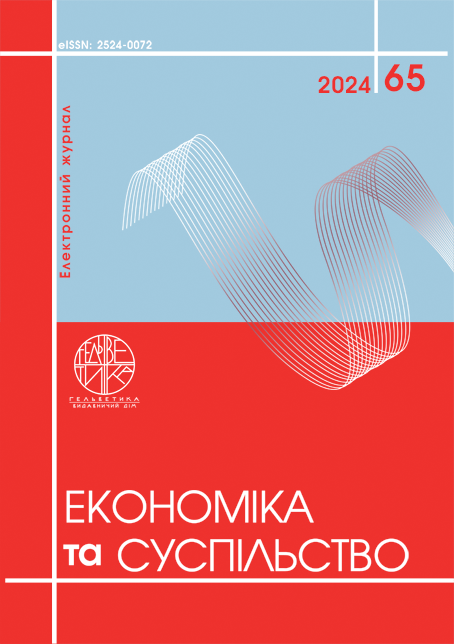BEHAVIORAL ECONOMICS IN STATE REGULATION OF BUSINESS
Abstract
The main principles of behavioral economics are theses that people often make irrational decisions; emotions and social factors affect economic decisions; the conditions in which the decision is made is of great importance and influence. The article talks about the use of behavioral economics in the state regulation of business, which is a rather little researched scientific problem. The author is sure that the state in business regulation is a kind of architect of choice. By changing the design of the environment, the state is able to change the context. The need for the state to use «elements» of behavioral economics in business regulation is due to the following factors: limited rationality and systematic errors: representatives of the business sector do not have complete, comprehensive information about the context of choice, the probability of various alternative options and their possible consequences; the significant influence of the context: the presence of certain established norms of behavior for the business sector, which are its formal «rules of the game»; ability to influence choice design: the way options are presented determines it, while the style, form and sequence in which the different options are presented significantly influence people's choices. An important issue of interaction between the state and the business sector is the choice of an effective and appropriate toolkit, which is considered as a set of means of both direct and indirect influence, which the state uses to regulate the activities of enterprises and organizations. According to the author, the use of the principles of behavioral economics can become a powerful impetus on the way to achieving effective interaction between the state and business sectors of the economy. The toolkit of state regulation of business from the point of view of behavioral principles may include: simplification of administrative procedures; stimulation of the desired behavior due to the establishment of automatic parameters and recognition by the state of social norms of business behavior. Despite the significant potential, the application of behavioral economics in business regulation has its limitations: opportunities for manipulation, availability of complete data on the behavior of the business sector, high cost of implementation of «behavioral interventions».
References
Akerlof G. A., Shiller R. J. Animal Spirits: How Human Psychology Drives the Economy, and Why It Matters for Global Capitalism. Princeton: Princeton University Press, 2009. URL: https://press.princeton.edu/ titles/8967.html (дата звернення: 01.08.2024)
Kahneman D. Thinking, Fast and Slow. USA, New York: Farrar, Straus and Giroux, 2011. 512 p.
Демкура Т. Архітектура вибору і підштовхування в поведінковій економіці. Соціально-економічні проблеми і держава. 2022. Вип. 2 (27). С. 85–92.URL: http://sepd.tntu.edu.ua/images/stories/pdf/2022/22dtvvpe.pdf (дата звернення: 04.08.2024)
Король М.М., Говда В.-Є.В. Вплив застосування основних засад поведінкової економічної теорії на економічний розвиток провідних країн світу. Сталий розвиток економіки. 2019. (1 (42), С. 51–58. URL: https://economdevelopment.in.ua/index.php/journal/article/view/53 (дата звернення: 15.08.2024)
Криленко В. І. Сучасні підходи до оцінки ефективності регуляторної політики. Бухгалтерський облік, аналіз та аудит: проблеми теорії, методології, організації. 2014. № 1. С. 144–151. URL: http://nbuv.gov.ua/UJRN/boaa_2014_1_18. (дата звернення: 20.08.2024)
Поведінкова економіка: від теорії до практики: міждисциплінарний навчальний посібник. За науковою ред. к.е.н., доц. Татомир І.Л., к.е.н., доц. Квасній Л.Г. Трускавець: ПОСВІТ, 2022, 408 с.
Солодухін С. В., Шайтанова Є. С. Сучасні підходи до аналізу впливу поведінкових факторів в управлінні економічними об’єктами. Науковий вісник Ужгородського національного університету. Серія «Міжнародні економічні відносини та світове господарство». 2017. Вип. 15. Ч. 2. С. 129–132.
Талер Р., Санстейн К. Поштовх. Як допомогти людям зробити правильний вибір. Пер. з англ. Ольга Захарченко. К.: Наш формат, 2017. 312 с.
Akerlof G. A., Shiller R. J. (2009) Animal Spirits: How Human Psychology Drives the Economy, and Why It Matters for Global Capitalism. Princeton: Princeton University Press, 2009. URL: https://press.princeton.edu/ titles/8967.html (accessed August 1, 2024) (дата звернення: 01.08.2024).
Kahneman D. (2011) Thinking, Fast and Slow. USA, New York: Farrar, Straus and Giroux, 2011. 512 p.
Demkura T. (2022) Arkhitektura vyboru i pidshtovkhuvannia v povedinkovii ekonomitsi. [The architecture of choice and nudging in behavioral economics]. Sotsialno-ekonomichni problemy i derzhava. vol. 2 (27). pp. 85–92. Available at: http://sepd.tntu.edu.ua/images/stories/pdf/2022/22dtvvpe.pdf (accessed August 4, 2024)
Korol M.M., Hovda V.-Ye.V. (2019) Vplyv zastosuvannia osnovnykh zasad povedinkovoi ekonomichnoi teorii na ekonomichnyi rozvytok providnykh krain svitu. [The impact of the application of the basic principles of behavioral economic theory on the economic development of the world's leading countries]. Stalyi rozvytok ekonomiky. (1 (42), pp. 51–58. Available at: https://economdevelopment.in.ua/index.php/journal/article/view/53 (accessed August 15, 2024)
Krylenko V. I. (2014) Suchasni pidkhody do otsinky efektyvnosti rehuliatornoi polityky. [Modern approaches to assessing the effectiveness of regulatory policy]. Bukhhalterskyi oblik, analiz ta audyt: problemy teorii, metodolohii, orhanizatsii. № 1. pp. 144–151. Available at: http://nbuv.gov.ua/UJRN/boaa_2014_1_18 (accessed August 20, 2024)
Povedinkova ekonomika: vid teorii do praktyky: mizhdystsyplinarnyi navchalnyi posibnyk. [Behavioral Economics: From Theory to Practice: An Interdisciplinary Study Guide]. Za naukovoiu red. k.e.n., dots. Tatomyr I.L., k.e.n., dots. Kvasnii L.H. Truskavets: POSVIT, 2022, 408 p.
Solodukhin S. V., Shaitanova Ye. S. (2017) Suchasni pidkhody do analizu vplyvu povedinkovykh faktoriv v upravlinni ekonomichnymy obiektamy. [Modern approaches to the analysis of the influence of behavioral factors in the management of economic objects]. Naukovyi visnyk Uzhhorodskoho natsionalnoho universytetu. Seriia «Mizhnarodni ekonomichni vidnosyny ta svitove hospodarstvo». vol. 15. Ch. 2. pp. 129–132.
Taler R., Sanstein K. (2017) Poshtovkh. Yak dopomohty liudiam zrobyty pravylnyi vybir. [Impetus. How to help people make the right choice.]. Per. z anhl. Olha Zakharchenko. K.: Nash format, 2017. 312 p.

This work is licensed under a Creative Commons Attribution 4.0 International License.


